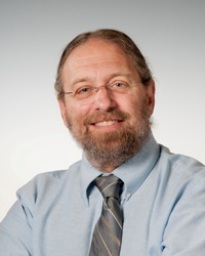Evergreen’s Provost and Vice President for Academic Affairs, Michael Zimmerman Ph.D, is a regular contributor to The Huffington Post. Zimmerman is also a founder of WaCLA, the Washington Consortium for the Liberal Arts.
Last week, the organization announced the three winners of the contest. Read more for Zimmerman’s piece, in which he shares insights from the award winning essays.
From the article “Using the Power of the Liberal Arts to Address the Problems of Our Time” by Michael Zimmerman on March 19, in the Blog of The Huffington Post.
Although politicians often disparage the liberal arts out of ignorance, I’m very much heartened to see that many high school students understand the value, both for individuals and for society, that the liberal arts provide. The high school students I’m thinking about are those who entered the liberal arts essay contest sponsored by the Washington Consortium for the Liberal Arts (WaCLA).
High school seniors from across the state of Washington were asked to discuss how the liberal arts might help solve a problem facing the state. The winning essays demonstrated impressive insight into the power a broad liberal education can have while the authors of those essays made it clear that they understood how complex problems necessitate creative, interdisciplinary solutions.
First place winner Kyra Mohn, a senior at Everett High School in Everett, Washington, argued that homelessness was a critical problem facing society and she asserted that such a complex issue was unlikely to be solved by focusing on a single discipline or approach. She explained that for homelessness to be defeated “we must approach it with well-developed critical thinking skills and a comprehensive world view. Sociology, economics, psychology, history, biology, and political science all factor in to understanding homelessness, since contributing causes include public policies, personal attitudes, social prejudice, physical addiction, and historical realities.”
Kyra recognized that a liberal arts education “encourages [students] to examine complex issues from various viewpoints, to think critically, and to come to reasoned conclusions.” She went on to say that because of this type of learning “values like compassion and the understanding of right and wrong are enhanced, allowing students to empathize with others.”
Problems associated with water supply intrigued second place winner Tyler Caseria, a senior at Sehome High School in Bellingham, Washington. He made it clear that new problems require a new kind of thinking. “With increasing development and changing weather patterns, it will be difficult to manage water with past technologies and solutions.” And, like Kyra, he emphasized the need for crossing disciplinary boundaries when looking for answers to difficult problems. “Dealing with these issues requires a mind that is seasoned with the knowledge of various topic areas.”
WaCLA’s third place winner, Eric Spear, a senior at Charles Wright Academy in Tacoma, Washington, shared opinions very similar to those offered by Kyra and Tyler, even though the issue he addressed was quite different: salmon recovery. “Recreationists, economists, business leaders, conservationists, commercial fishermen and tribal members have a better chance of finding common ground and reaching compromise if they are rooted in the liberal arts tradition of holding different cultures, traditions and points of view in high regard.”
Eric made the additional point that an education that exposes students to the breadth of the liberal arts brings more creative energy to the search for productive solutions. He argued that critical thinking skills at the heart of the liberal arts are important but not enough. Yes, “the ability to analyze, infer, reason, interpret, and evaluate data equip those involved to use facts and figures to create the most effective solutions,” but it takes more to overcome inertia and instigate action. “Specific skills and talents nurtured in fine arts classes can also contribute to the cause. Great artwork carries the message of care for salmon into our communities in creative and energizing ways. Paintings, sculptures, photographs, carvings, and drawings of salmon all invite the people of Washington State to better understand and celebrate the beauty and importance of salmon.”
All three of these students, and many, many more like them who entered the essay contest, were able to articulate a thoughtful position that has escaped many of our political leaders. Instead of looking for narrow technical solutions to wicked problems, they understood the advantage of making use of different perspectives, of building diverse coalitions and of thinking critically. Interestingly, what these students valued most about a liberal arts education is remarkably similar to the traits employers have repeatedly said they value most in prospective new hires in studies commissioned by the Association of American Colleges and Universities.
These students understand that society is richer and solutions to our problems are nearer at hand when disciplines all across the educational spectrum are supported. We need artists and poets every bit as much as we need physicists and economists. But more than simply needing artists, poets, physicists and economists, we need poets who appreciate the value of physics and economists who are moved by great art.
The essays these students have written are refreshingly naïve. But there is wisdom in that naïveté, wisdom still unadulterated by cynicism. Our challenge is to learn from these students and to nurture them as they progress along their liberal arts journeys.
Read the original piece on The Huffington Post.


